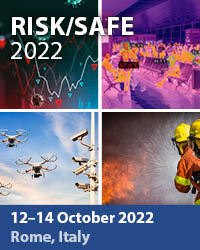Weapon Effectiveness Models: Are They Appropriate For Use In Force Protection Analyses?
Price
Free (open access)
Transaction
Volume
82
Pages
10
Published
2005
Size
668 kb
Paper DOI
10.2495/SAFE050031
Copyright
WIT Press
Author(s)
F. A. Maestas & L. A. Young
Abstract
The Department of Defense has developed numerous weapon effectiveness tools that have been successfully used in evaluating the performance of military warheads against enemy above-ground and underground targets. Tools such as the Air Force Research Laboratory’s (AFRL’s) Modular Effectiveness/ Vulnerability Assessment (MEVA) code and the Defense Threat Reduction Agency’s (DTRA’s) Integrated Modular Effectiveness Analysis (IMEA) code embody algorithms for blast and fragment environment characterization, structural response analyses, and equipment and structural fault tree assessments, Young, York [1, 2]. Additional analysis tools like the Extended Collateral Damage (ECD) Methodology, developed to support a number of applications, also include algorithms for predicting personal injury and death, Whitehouse [3]. Because physical security assessments share the need for modelling blast and fragmentation effects on structures and personnel, one approach to costeffectively advancing physical security code capabilities is to apply existing weapon effectiveness codes to defensive purposes. This paper examines the technical issues associated with attempting this type of technology transition, and makes recommendations for addressing the technical issues that arise from the differences between weapon effectiveness and physical security applications. Keywords: weapon effectiveness, survivability analysis, modelling and simulation, physical security analysis, personnel security. 1 Introduction In recent years, physical security and force protection specialists have been obligated to make costly and potentially life-saving decisions regarding blast
Keywords
weapon effectiveness, survivability analysis, modelling and simulation, physical security analysis, personnel security.




